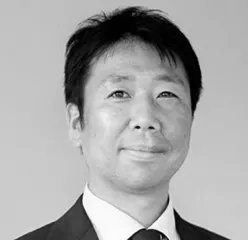
Startup-O Stars met Satoshi Konno of IP Bridge to share his insights on navigating the startup ecosystem with knowledge, preparedness and communication.
Since he began in 1995, Satoshi Konno’s career trajectory has been the perfect confluence of technology and investing. He reminisces fondly about the 1980’s and the genesis of his love for personal computers, floppy disks, and dial up internet connections – and in a remarkably consistent journey, has since traversed the universe of technology startups with an in-depth appreciation of its fundamentals.
An important rite of passage for an employee in a VC firm is facing their Investment Committee, which, at its heart, tests the knowledge and confidence that the proposer has acquired about the startup under consideration. When fielding inevitable probing questions from the Investment Committee, a proposer’s confidence will be evident from their composure and avoidance of a “red face”.
Here, Konno shares his wisdom and experiences from a multitude of red face tests, for the benefit of founders and investors alike.
1
Become an expert on the fundamentals first
Knowing the basics, the fundamentals, before embarking on a bells & whistles venture will stand any founder or investor in good stead. In this regard, Konno shares part of his own journey of how his expertise developed and grew.
He began walking the talk when he joined the independent computer services firm, CSK (now SCSK), in 1995, attracted by its culture of “intrapreneurship”. Here, he dived deep into the nascent technologies of LAN, TCP/IP, and RDBMS, which serves him even in today’s fast-paced tech world. These fundamentals, he says, are still relevant as the basic foundation of many systems, even as specific products continue to evolve.
With in-depth engineering knowledge under his belt and an escalating passion for the industry, Konno embarked on the next step in his journey, undertaking an MBA from the tech-focused University of Texas at Austin. Here, he added venture capital and finance to his repertoire of skills.
On his return to Japan in 2003, he asked to be placed in the Venture Capital arm of CSK Group, to nurture his dual interests in finance and technology. Thus, by the age of 30, he was interacting closely with entrepreneurs at the cutting edge, exchanging over 1,000 business cards with potential partners every year.
At the time, most venture capitalists were securities and finance experts, who could analyse financials fluently – but few had credible technology and domain knowledge like Konno. This proved an invaluable asset early in his investing career, as he was able to engage meaningfully with the emerging breed of CTO’s.
"Knowing the basics before embarking on a bells & whistles venture will stand any founder or investor in good stead."

2
Be careful what you spin – put honesty first
How a red face test in a VC environment plays out depends on how the startup has equipped their proposer – teamwork and honest communication are critical to the success of this process. While a startup may be inclined to withhold or gloss over seemingly negative aspects, this can result in a loss of trust and credibility.
Recognize at the outset that failures, pivots and mistakes are very much the norms – in fact, no great startup journey is deemed complete without such a story to tell. When communicating such experiences to a potential investor, a founder will benefit from being honest and detailed, and emphasising lessons learned. “There is always a positive side to any failure story,” says Konno, ‘so focus on educating your investor on what resulted from the setback. Do not try to hide or gloss over it.”
Transparency is key in this communication, simply because the objective is to have the investor see the story from the founder’s unique lens. Trying to tweak the facts around a situation, or window dress will only serve as a red flag for an investor.
"Focus on educating your investor on what resulted from the setback. Do not try to hide or gloss over it."

3
Chemistry is a tipping point in building the right relationship
Many an anti-portfolio is littered with deals where all boxes were ticked, but the chemistry was missing. Konno says, “with all things being equal on financials, business, and analytics; trust and chemistry can be the tipping point in decision making.”
Investors will do well to adopt an attitude of respect and empathy for their entrepreneur-candidates who have put their lives on hold in the face of risk. From this place of courtesy, an investor must challenge assumption and shine a spotlight where things do not seem to fit – in this process there is mutual benefit.
Ironically, Konno’s most successful investment to date resulted not from the most polished, rehearsed pitch, but rather from a lengthy dialogue with a committed, passionate founder.
"Trust and chemistry can be the tipping point in decision making."

4
Two targeted questions that often trip up founders
Konno explains that underlying every startup story is a series of catalysts that sparked the journey. In his experience, few have crafted their plans down to the last detail, and as such, their preparedness may be called into question.
Two crucial aspects should, therefore, be considered by investors and founders alike. Firstly, the differentiation that a startup represents must be well considered and conveyed. Secondly, the founder must have a clear vision. Konno tends to repeatedly ask a founder to share their vision for the next 5 years and is looking for consistency and clarity in their responses. He then gauges whether their current actions and plans fit with their vision, which in turn, builds a clear picture of their commitment and focus.
He shares a recent episode from his investing career, where he asked a founder a barrage of questions over 3 days, during which the founder was able to demonstrate their clarity and passion to benefit society. This led to a high degree of respect and trust, such that Konno invested a larger sum than was expected. “Show me more than I expect to see, and I will give you more than you expect,” says Konno, of his unwavering commitment to authentic founders.
“Show me more than I expect to see, and I will give you more than you expect."

5
What a founder should do when rejected – and what an investor should look for?
For a founder who is rejected by an investor, Konno has the following advice, “go back and fill the gaps. Return to the investor having taken some concrete action, rather than with additional data points.”.
He suggests approaching the investor a second time, bearing additional endorsement either in the form of other funding or demonstrable traction – having made a noteworthy change to invite re-evaluation.
"Return to the investor having taken some concrete action, rather than with additional data points."

6
To grow in this space, engage far and wide
Konno points out that VC’s and investors tend to share deals among their circles of trusted peers. This benefits all stakeholders, as a wide spectrum of domain knowledge, expertise and ability can be clubbed to create a mutual advantage. In this context, he highlights his own example as an Intellectual Property investor, wherein he supports the investee startup in relevant negotiation and dialogue with large corporations, thereby adding value not only to the startup but also to the entire set of co-investors.
“The decision process in large organisations involves providing the right information to the right person, and therefore, knowing what fit they are seeking,” he says, highlighting that often, a club of experienced investors can create synergies for the group as a whole. As such, for all parties involved, being in the right ecosystem is important.
Konno’s own vision represents a deep commitment to this ecosystem. His personal 5-year vision has remained remarkably consistent through his prolific tech investing career – to continue to support entrepreneurs, as deeply as possible, and to encourage authentic founders. His words of advice to aspiring entrepreneurs, “Go. Do. Meet people, ask questions.”
This article was written by Radhika Shukla, Content Specialist at Startup-O.
Startup-O is South East Asia’s leading platform for startup assessments, investments, and venture building. It was created with ‘Entrepreneurs for Entrepreneurs’ ethos at the core of its design. The assessment platform coupled with venture funds helps with systematic discovery & investing in high traction tech startups. These promising growth startups are selected through a transparent process which is a blend of multi-stage online evaluations conducted by seasoned global experts & proprietary ranking algorithms on the platform.



